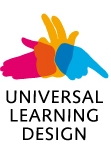The primary theme of this paper is on giving disabled students direct control over the technologies they use. It also includes developing employment prospects for disabled students and open educational resources for accessible practice.
Xerte Online Toolkits (XOT) is an Open Source, award-winning application that is used to build and publish web-based e-learning objects. A learning object comprises interactive pages that are created from a variety of Xerte templates. XOT puts the disabled students in charge because it allows students to make their own adjustments on a variety of settings. These settings include font, letter size and contrast. Its templates include narrations and related audio clips.
The e-TALIA project is a Leonardo Transfer of innovation project and has seven partners from six different European countries. The objectives of the project include building upon the innovative blended e-learning used in the coordinating institution and working collaboratively with European partners. It included developing a set of online learning objects that could be used for language learning in small to medium enterprises (SMEs) within the leisure and hospitality sectors. A criterion for the learning objects was that they were required to be developed using free or Open Source applications.
An early part of the e-TALIA project comprised a literature review of the current situation of language and intercultural needs and the modes of course delivery for SMEs in leisure and hospitality. These findings from the survey showed that many SMEs miss out on business because of insufficient foreign language skills.
In addition, several of the partners carried out a customer survey to determine the needs of SMEs in the hospitality and leisure sectors concerning training in the areas of language skills and intercultural awareness. From the results, it was confirmed that there was a need for language learning within the sectors and the two languages that were most indicated were English and German.
Methodology
The stages of the project started with the literature search and needs analysis for language training and intercultural awareness in the Hospitality and Leisure sectors, to establish the state of the art mentioned above.
The next stage was to transfer from the promoter partner to the other partner members experiences in developing blended e-learning training. The partners’ best practice would then be integrated into the existing e-learning template in order to provide a training solution.
The e-learning objects would make training more accessible to people within the SMEs.
The e-TALIA e-learning objects would then be piloted by SMEs employees.
This paper concentrates on the transfer of knowledge using Xerte Online Toolkits as place for creating learning objects and feedback from those constructing the learning objects.
Work and results
Having concluded that there was a training need for language and intercultural awareness, the author used XOT to build a language learning objects based on ones that had been previously constructed using an alternative e-learning tool. These were used as examples to present some of the templates in a language learning context to the Polish partners who were to be authors of the e-TALIA language learning objects.
XOT was used because it was free, unlike the alternatives that had previously been used. It was a stipulation of the project that free applications be used. XOT also had templates that could use audio and multimedia which would be useful for language learning. Finally, XOT had inbuilt tools to enable students to change settings according to their browsing preferences.
Learning objects have been created by the Polish partners using XOT and are to date being checked and modified where necessary and are being sent out for piloting.
Results so far show that the Polish partners were able to create learning objects that incorporated a variety of XOT templates and they have reported that XOT is a good solution to creating language learning objects, due to its accessible ethos.
Impact
XOT will have been introduced to people in five other European countries. The use of XOT’s accessibility features has been successfully expanded for use within language learning.
Conclusion
Innovation has been transferred successfully and language and culture learning objects have been created using XOT. These can be developed further according to the feedback that would be received after the piloting stage of the project. It is envisaged that the learning objects could be incorporated within a Moodle course.
References
Xerte Online Toolkits: http://www.jisctechdis.ac.uk/techdis/technologymatters/contentcreation/
creatinginclusivecontent/Xerte.
Xerte Online Toolkits has scooped first prize at the IMS Global Learning Impact Awards 2010 in California: http://www.jisctechdis.ac.uk/techdis/news/detail/2010/JISCTechDisBacksWinner28052010 .
Leonardo: http://www.leonardo.org.uk/.
e-TALIA: http://www.e-talia.net.
Methodology: http://www.e-talia.net/index.php/methodology.
Mapping Report on Literature review and needs: http://www.e-talia.net/index.php/results.









